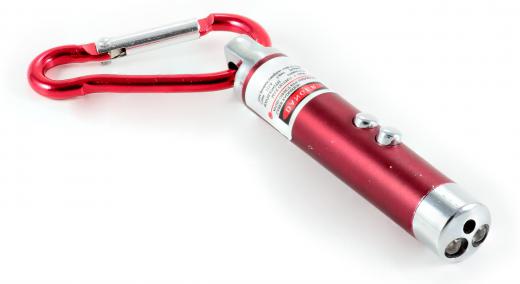An optical mirror is a mirror type used to reflect visible light in optical devices such as cameras and telescopes. These instruments typically use an optical mirror to filter out the harmful effects of the reflected light or to send the viewed light to both an eyepiece and a work instrument without distortion. These mirrors are also common in areas where an infinite space is needed for a light beam; two mirrors may be set up parallel to one another so the light may bounce back and forth forever.
The manufacturing process for an optical mirror typically begins with a sheet of glass or plastic. Glass is generally the preferred base material, but certain applications require a denser or more heat-resistant material, so plastic is used instead. If the mirror needs a specific shape, it is usually formed while it is still a sheet to prevent damage to the reflective surface.

After the pane is properly shaped, one side of the pane is covered in a reflective substance. Historically, this was tin, mercury or silver, but today aluminum is the most commonly-used reflective substance. Mirrors with specific light-reflective properties, such as those used for scientific experimentation, are coated with any number of other chemicals, each with its own individual properties.

The quality of an optical mirror is often very easy to test. If a small item is touched to the glass, such as a fingertip or the end of and unsharpened pencil, the reflection will show the overall quality of the surface. The distance between the actual and reflected image shows the depth of the glass; a ghost image indicates that the pane is likely made of plastic or poor-quality glass, and any variation in color indicates a poor reflective coating. A good mirror will have a noticeable thickness and no variation or ghosting.
The primary purpose of an optical mirror is the reflection of light, but that isn’t all it does. Mirrors with specific reflective coating can filter out certain wavelengths of light, making the light safer to observe. In addition, a set of properly-aligned mirrors can split visible light into two different directions. This allows a person to observe the light while still bringing the light into a central instrument, like a camera.
People use optical mirrors for any number of reasons. Nearly all personal mirrors, such as bathroom or car mirrors, are a type of optical mirror. These mirrors are common inside non-digital cameras, microscopes and telescopes, as well as nearly any other device with a standard eyepiece. They are also used in nearly any laser-based device, from the common laser pointer all the way to military-targeting systems.
